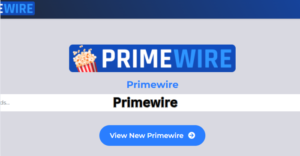Smoothstack Lawsuit – Unravelling the Controversy and Its Implications!

The technology industry has recently witnessed a significant legal battle that has sparked discussions across the sector-the Smoothstack lawsuit.
This case, centered on a prominent training and staffing company, has brought to light issues surrounding employment contracts, repayment agreements, and the broader ethical concerns in the tech industry’s hiring and training practices.
In this article, we will delve deeply into the Smoothstack lawsuit, exploring its background, legal implications, and the potential impact on both the company and the wider industry.
Understanding the Smoothstack Lawsuit:
1. Background of Smoothstack:
Smoothstack is a tech training and staffing company that has positioned itself as a bridge between aspiring IT professionals and the tech companies in need of skilled labor. By offering immersive training programs and subsequent job placements, Smoothstack has garnered attention for its innovative approach to tech education. However, the company’s business model has also been under scrutiny, particularly the contractual obligations it imposes on its trainees.
2. The Core of the Allegations:
The lawsuit against Smoothstack primarily revolves around the repayment agreements that trainees are required to sign. These contracts typically mandate that trainees must repay a substantial portion of their training costs if they leave the company before a specified period. Critics argue that these agreements are excessively punitive, trapping trainees in unfavorable conditions that are difficult to escape. The controversy has drawn the attention of lawmakers, raising questions about the legality and ethics of such practices.
3. Employment Contracts Under the Microscope:
Employment contracts are at the heart of the Smoothstack lawsuit. The specific clauses that require employees to repay training costs have been described as predatory and exploitative by some legal experts. These clauses often include non-compete agreements and stipulations that make it challenging for trainees to seek employment elsewhere if they are dissatisfied with their experience at Smoothstack. The lawsuit claims that these practices may violate both state and federal labor laws, potentially setting a precedent for how similar contracts are viewed in the tech industry.
Legal Implications of the Smoothstack Lawsuit:
1. Potential Violations of Labour Laws:
The Smoothstack lawsuit brings to the fore potential violations of labor laws, particularly those related to unfair labor practices and employee rights. The enforcement of repayment agreements that financially burden employees could be seen as a form of coercion, limiting their ability to freely pursue other employment opportunities. This has raised red flags among lawmakers and advocacy groups, who argue that such practices undermine the principles of fair labor.
2. Federal and State Lawmakers’ Reactions:
Both federal and state lawmakers have expressed concern over the implications of the Smoothstack lawsuit. There have been calls for a closer examination of the tech industry’s hiring practices, particularly regarding companies that impose stringent repayment conditions on employees. Some lawmakers are even advocating for new legislation that would provide greater protections for employees in similar situations, ensuring that they are not unfairly penalized for seeking better opportunities.
3. Impact on Smoothstack’s Business Model:
The outcome of the Smoothstack lawsuit could have significant repercussions for the company’s business model. If the courts find that the repayment agreements and other contractual obligations are unlawful, Smoothstack may be forced to revise its training and employment practices. This could lead to a fundamental shift in how the company operates, potentially affecting its profitability and standing within the industry.
4. Broader Implications for the Tech Industry:
The Smoothstack lawsuit is not just a legal battle for one company; it represents a larger issue within the tech industry. Many other companies have adopted similar practices, and a ruling against Smoothstack could set a legal precedent that affects the entire sector. This could lead to increased regulatory scrutiny and the need for tech companies to re-evaluate their training and employment contracts to avoid potential legal challenges.
Analyzing the Ethical Concerns:
1. The Ethics of Repayment Agreements:
The ethical concerns surrounding repayment agreements are central to the Smoothstack lawsuit. Critics argue that these agreements exploit vulnerable trainees, who may not fully understand the long-term financial implications of the contracts they sign. The notion that employees must repay a portion of their training costs if they leave the company early can be seen as a form of indentured servitude, binding them to the company regardless of their satisfaction or career goals.
2. Balancing Business Interests and Employee Rights:
While companies like Smoothstack argue that repayment agreements are necessary to recoup the costs of training, there is a growing consensus that such practices must be balanced with employee rights. The lawsuit raises important questions about where the line should be drawn between protecting business interests and ensuring that employees are treated fairly and ethically. Companies may need to find alternative ways to cover training costs that do not place an undue burden on their employees.
3. The Role of Transparency in Employment Contracts:
Transparency is another key issue highlighted by the Smoothstack lawsuit. Many of the trainees who have come forward claim that they were not fully aware of the terms and conditions of their contracts, particularly the repayment clauses. This lack of transparency can lead to misunderstandings and a sense of betrayal when employees discover the true nature of their obligations. Moving forward, companies may need to adopt more transparent practices, clearly outlining the potential consequences of signing such agreements.
The Future of Training and Staffing Companies:
1. Adapting to Legal and Ethical Standards:
In the wake of the Smoothstack lawsuit, training and staffing companies may need to adapt their business models to align with evolving legal and ethical standards. This could involve rethinking how training costs are covered, offering more flexible repayment options, or eliminating such agreements altogether. Companies that fail to adapt may find themselves facing similar legal challenges, which could damage their reputations and financial stability.
2. The Rise of Alternative Training Models:
The controversy surrounding Smoothstack has also sparked interest in alternative training models that do not rely on restrictive repayment agreements. Bootcamps, online courses, and employer-sponsored training programs are becoming increasingly popular as they offer more flexibility and less financial risk for participants. These models may become more prevalent as the tech industry continues to evolve and as companies seek to attract top talent without resorting to potentially exploitative practices.
3. Impact on Recruitment and Retention:
The Smoothstack lawsuit could also have a lasting impact on recruitment and retention in the tech industry. Companies that are perceived as treating their employees unfairly may struggle to attract top talent, particularly in a competitive job market. On the other hand, companies that prioritize employee welfare and transparency may find it easier to recruit and retain skilled professionals, ultimately giving them a competitive edge.
Conclusion:
The Smoothstack lawsuit is a complex and multifaceted case that has significant implications for the tech industry. As the legal battle unfolds, it will likely prompt a broader discussion about the ethics and legality of employment contracts and repayment agreements. Companies in the tech sector will need to pay close attention to the outcome of this case and consider how they can adapt their practices to avoid similar controversies in the future. Ultimately, the Smoothstack lawsuit serves as a reminder of the importance of balancing business interests with the rights and well-being of employees.
FAQ’s:
1. What is the Smoothstack lawsuit about?
The Smoothstack lawsuit centers around allegations that the company’s repayment agreements and employment contracts are unfair and potentially illegal. Trainees are required to repay a portion of their training costs if they leave the company before a certain period, which some argue is exploitative and violates labor laws.
2. Why are repayment agreements controversial?
Repayment agreements are controversial because they can place a significant financial burden on employees, effectively trapping them in their jobs. Critics argue that these agreements exploit vulnerable trainees and limit their ability to seek better employment opportunities.
: 3. How could the Smoothstack lawsuit impact the tech industry?
The lawsuit could set a legal precedent that affects other companies with similar practices. If the courts rule against Smoothstack, it could lead to increased regulatory scrutiny and force companies across the tech industry to revise their employment contracts.
4. What are the potential legal violations in the Smoothstack case?
The potential legal violations include unfair labor practices and coercion. The enforcement of repayment agreements that financially burden employees could be seen as limiting their rights to pursue other employment opportunities, which may be a violation of labor laws.
5. How might this lawsuit affect Smoothstack’s business model?
If Smoothstack loses the lawsuit, the company may need to significantly alter its business model. This could include revising or eliminating repayment agreements and potentially changing how they approach training and staffing altogether.
6. Are there alternatives to repayment agreements in training programs?
Yes, there are alternatives such as employer-sponsored training programs, bootcamps, and online courses that do not require repayment agreements. These models offer more flexibility and less financial risk for participants.
7. What role does transparency play in this lawsuit?
Transparency is a critical issue in the lawsuit, as many trainees claim they were not fully aware of the terms of their contracts. This lack of transparency has led to misunderstandings and legal challenges, highlighting the need for clearer communication in employment agreements.
8. Could this lawsuit lead to new legislation?
The Smoothstack lawsuit has caught the attention of lawmakers, and there is a possibility that it could lead to new legislation aimed at protecting employees from similar practices. Such legislation could impose stricter regulations on repayment agreements and employment contracts.
9. How can companies avoid similar legal challenges?
Companies can avoid similar legal challenges by ensuring their employment contracts are fair, transparent, and compliant with labour laws. Offering more flexible repayment options or eliminating such agreements altogether may also help mitigate the risk of legal action.
10. What is the broader significance of the Smoothstack lawsuit?
The broader significance of the Smoothstack lawsuit lies in its potential to reshape the tech industry’s approach to employment contracts and training programs. It serves as a reminder that companies must balance their business interests with the rights and well-being of their employees to maintain ethical and legal standards.





